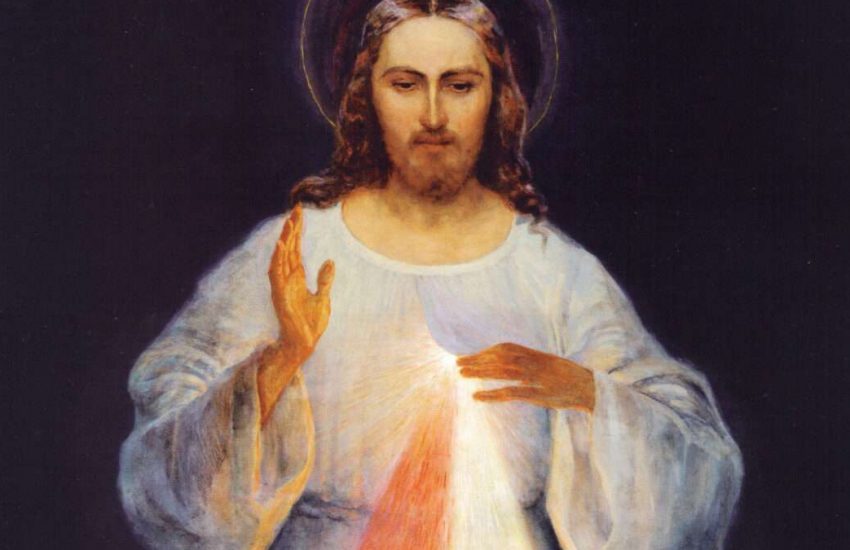The Cost of Forgiveness
24th Sunday in Ordinary Time (A)
click here for readings
No doubt the most beloved of all Christian prayers is the Our Father, also know as the Lord’s Prayer. This comes as no surprise because it is the prayer given to us by Christ Himself. So it is understandably familiar to all of us. But there is a danger in allowing it to become too familiar to the point where we forget to actually think about it. If we really think about what we are asking God for in this prayer, it may give us pause — especially the part where we ask God to “forgive us our trespasses, as we forgive those who trespass against us.” In other words, we are asking God not to forgive us if we do not forgive others.
This is the message of the parable Jesus gives us in this Sunday’s gospel reading (Mt 18:21-35). A man owes a great debt to a king which he is unable to pay. The king has mercy and forgives his debt. The man then goes off and meets another man who owes him a much smaller sum. He is likewise unable to pay, but the first man refuses to forgive the debt and has him put in prison instead. When the king hears that the man whose debt he forgave refused to forgive the debt of someone else, he has him tortured until he pays back his debt in full. Jesus says this is what we can expect from our Heavenly Father “unless each of you forgives his brother from his heart.”
It can be hard to forgive others. We know, as Christians, that we are supposed to. Jesus is clear about this. When Peter asks Jesus how many times we are to forgive someone who sins against us, Jesus says, “seventy times seven,” which is a Jewish way of saying as many times as it takes. We know we are supposed to forgive others. So why is it so hard? Why, when God forgives the deepest, darkest sins of our hearts, do we dare hold a grudge against our roommate who leaves dirty dishes in the sink?
Not washing the dishes may seem like a trivial matter, but friendships are poisoned when we hold grudges over even small things. If we have a hard time forgiving small matters, it is no wonder we find it difficult to forgive more serious transgressions.
“I want to forgive, but I just can’t get over what they did to me! It hurts too much.” This is what I hear most often when students share with me about their struggles with forgiveness. They still suffer from the emotional wound inflicted on them and can’t see a way to forgive the person who hurt them while they are still hurting. We think that to forgive means to forget, or that forgiveness can only come after healing, when the wounds don’t hurt any more. But we are wrong. Forgiveness doesn’t mean getting over the pain. Forgiveness means accepting the pain.
Mercy & Justice
Our sense of justice can also be a stumbling block to forgiveness. Mercy and justice can seem to us to be two opposing forces. Justice demands the criminal be punished for his crime. Mercy waives the punishment. Justice demands the debtor pay back what he owes. Mercy forgives the debt. But it’s not really that simple.
God is both perfectly merciful and perfectly just, so we know these two things cannot be in opposition. The law of non-contradiction tells us that God cannot be two opposite things at the same time. In God, mercy and justice find synchronicity. They are one.
We can see how this is by looking more closely at the parable of the unforgiving debtor. Justice demands that debts be paid. “Justice” comes from the Latin root jus, which means “what is right.” If I lend you $100, it is only right that you pay me back $100. (It would be unjust for me to demand back $200 in payment, which is why the Church considers unreasonable interest rates to be immoral).
But you, personally, don’t have to give me $100 from your bank account. If you have a friend who wants to pay me $100 on your behalf, that would still satisfy your debt. I could likewise satisfy your debt by forgiving it. Why? Because, in effect, I would be “paying back” the $100 myself. By forgiving your debt, I am accepting a $100 loss. Justice is still satisfied, but in mercy I choose to satisfy the demands of justice myself. I incur the cost.
This is what happens when we forgive. We willingly incur the cost of someone else’s sin. When someone hurts you, they owe you for the pain and suffering they have caused. But how do they pay it back? Justice would seem to demand “an eye for an eye and a tooth for a tooth.” They hurt you and you hurt them back. But that’s not true justice. That’s vengeance. As we read in this Sunday’s first reading from Sirach, “the vengeful will suffer the Lord’s vengeance” (Sir 28:1).

To forgive someone who has caused you pain doesn’t mean getting over the pain. It means accepting the pain. It means paying their debt yourself, for the sake of their good and the good of your relationship.
This is exactly what Jesus does for us on the cross. On the cross, Mercy and Justice unite. On the cross, God tells us, “You owe me a debt you cannot repay, but I will accept the pain caused by your sins. For love of you, I will forgive your debt so that our relationship might be restored.”
Looking upon the suffering of our Lord, how dare we hold a grudge against others?
When we struggle to forgive those who have harmed us, let us remember Jesus’ example and ask for His divine assistance to bear whatever cross mercy requires of us.



